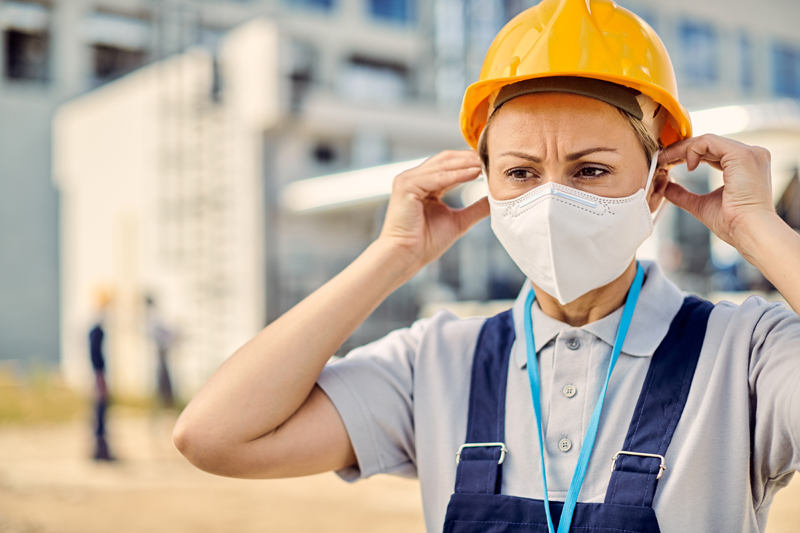Construction site accidents can be any accident that involves a construction worker or a bystander that happens on a construction site. When the accident involves a worker, he or she may be eligible for workers’ compensation coverage if the employer or contractor is accountable for the accident. To determine eligibility, the employer or workers’ compensation insurer will perform a comprehensive medical records analysis of the related medical documentation.
In the United States, construction sites are considered to be among some of the most dangerous work environments because of the presence of heavy equipment, dangerous materials, power tools, and scaffolding. It is estimated that around 150,000 construction workers are injured in construction site accidents each year. The risk for construction site injuries increases during the winter season.
Who Is Liable for a Construction Site Accident?
Often, establishing liability in a construction site accident can be complicated, with many entities involved – contractors, subcontractors, equipment providers, and site owners. To establish liability, main considerations are how the accident occurred, who is responsible for that particular portion of the construction site, and the status of the injured person. In many cases, a worker of a subcontractor or contractor may be able to recover some benefits through the employer’s workers’ compensation policy.
Typically, the law requires employers to carry workers’ compensation insurance to cover the lost wages and medical expenses or the injured worker. The worker doesn’t have to prove that the injury was caused by the employer’s negligence because workers’ compensation is a no-fault insurance program. It is designed to compensate the injured worker without the procedures and formalities associated with court litigation.
Determining Eligibility for Workers’ Compensation Coverage
Primarily, there should be an employer – employee relationship, and the injury must be work-related and must have occurred while the employee is discharging duties of the employment. The employer is required to accept the claim if the following criteria are met.
- The worker was injured when performing work-related tasks
- Reported the injury within 30 days of getting injured
- Was injured during working hours
How Construction Site Injuries Occur and the Types of Injuries
Typically, injuries are caused because of the following reasons:
- Falls from heights due to improperly assembled scaffolding
- Unsafe ladders
- Electrical lines not properly installed
- Defective equipment
- Holes in the flooring
- Wet conditions
- Damaged machinery
- Dangerous materials
- Electrical fires
- Construction debris
Following are the common injuries sustained by construction site workers that may be covered by workers’ compensation.
- Head/spine injuries
- Dislocations
- Broken bones
- Lacerations
- Coma/unconsciousness
- Loss of hearing
- Severed nerve
- Sprains
- Pain and weakness
- Back injury
- Electrical burns
- Electrocution
Accidents Specific to the Winter Season
Some of the most common accidents at construction sites during the winter season include the following.
- Injury due to impact of the cold weather, such as hypothermia, frostbite and trench foot.
- Slip and fall accidents due to the presence of increased snow and ice and more slippery surfaces.
- Carbon monoxide poisoning risks caused by increase in the trend to warm up motor vehicles, improper maintenance of heating systems, and using generators during winter storms.
- Electrocution accidents when dealing with power lines and downed trees.
Workers’ Compensation Coverage Essentials
The injured worker must immediately report the incident to the employer so that the claims process can be initiated. The employer or insurer may call for a medical peer review to verify the injury and its impact. If the workplace injury is established, the employee may receive coverage.
- Workers’ compensation insurance automatically pays all the medical bills incurred. However, the worker may be asked to use specific medical care providers designated by his or her workers’ compensation policy. Any outside care sought may not be compensated by the workers’ comp insurance.
- The employee may receive temporary disability benefits, amounting to two-thirds of his/her income as compensation. This may depend on the particular U.S state. For instance, Louisiana workers’ compensation pays 2/3rd of the worker’s income during his or her recovery period. That money can be used to pay the medical bills and take care of other expenses incurred.
- The worker may receive a one-time settlement in case he/she sustains a permanent injury. Permanent or long-term injuries sustained by a worker on a construction site may be compensated by a one-time payout that will compensate for the injuries sustained and the losses faced because of those injuries. The amount paid depends on how much restriction the injury places on the worker’s activities, his/her age, occupation, and earnings at the time of the injury.
- If the injury prevents the employee from returning to his/her former job, assistance in getting another suitable job or vocational rehabilitation may be included in the benefits. During this rehabilitation, a partial income will be paid out similar to temporary disability payments. This has a maximum monetary limit and may be replaced by a modified/different work offer from the employer.
Workers who are injured on construction sites can benefit from the assistance of a workers’ compensation attorney. The attorney can evaluate the claim and determine eligibility and compensation due with a comprehensive medical records analysis. Attorneys assist with meeting deadlines, filling and submitting claim forms, and various notice requirements. They will ensure that the injured worker receives full and fair compensation.
Disclaimer: The content in this blog is sourced from reliable internet resources and is meant for informative purposes only. For a professional opinion in this regard, contact a workers’ compensation attorney.




